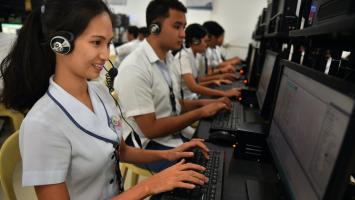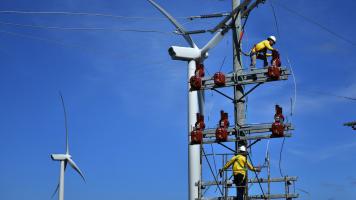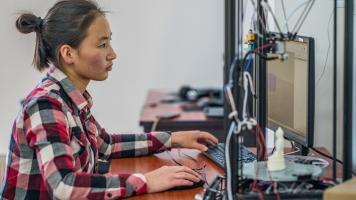To ensure that no one is left behind, governments and employers must be mindful of existing inequalities, expand the green labor pool, and equip workers to fully contribute to the change.
To ensure Southeast Asia has skilled workers able to take on green jobs as it aims for net zero by 2050, the region needs to reskill its labor force so they can adopt new technologies and work modes for jobs of the future. To ensure that no one is left behind, governments and employers must be mindful of existing inequalities, expand the green labor pool, and equip workers to fully contribute to the net-zero transition.
This session, "Jobs of the Future: Building Diversity into the Net-Zero Transition," at the fourth Southeast Asia Development Symposium (SEADS), examined the challenges and opportunities in promoting workforce diversity in ASEAN, with a focus on the policies, education programs, and private sector engagement needed for accelerating the region's net-zero ambition.
Speakers
- Scene Setter: Lenny Rosalin, Deputy Minister for Gender Equality, Ministry of Women’s Empowerment and Child Protection, Indonesia
- Shaheen Chughtai, Regional Advocacy and Campaigns Director-Asia, Save the Children
- Giulia Ajmone Marsan, Director, Strategy and Partnership, Economic Research Institute for ASEAN and East Asia
- Prateek Hegde, Chief Operating Officer, Asia–Pacific, Generation
- Marija Ralic, Lead, Google.org Asia–Pacific, Google
- Dini Indrawati Septiani, Country Director, Indonesia, Asian Venture Philanthropy Network
- Moderator: Adisti Sukma Sawitri, Managing Editor, Jakarta Post
- Master of Ceremonies: Veronica Joffre, Senior Gender and Social Development Specialist, ADB
The session was co-organized with Save the Children, Economic Research Institute for ASEAN and East Asia, and Generation.
With the theme, "Imagining a Net-Zero ASEAN," SEADS 2023 explored measures governments, communities, and the private sector could take to progress toward carbon neutrality.


